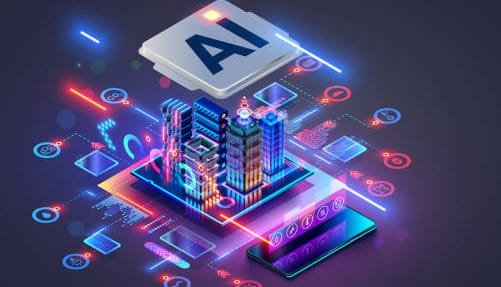Between one million and three million UK private sector employees could be displaced by artificial intelligence (AI). Still, the general increase in unemployment might eventually stay in the low hundreds of thousands since new job opportunities generated by AI-driven expansion fill in place.
How Many Jobs Could AI Displace Annually During Peak Disruption?
At the height of AI-driven disruption, estimates point to 60,000 and 275,000 jobs lost yearly over the following decades. Given job losses in the UK averaging over 450,000 annually over the past ten years, this number was labeled “relatively modest.”
While artificial intelligence will affect employment, the losses are projected to be minor relative to the overall workforce of the United Kingdom, which currently numbers about 33 million.
Why Has AI Risen on the Political Agenda?

Artificial intelligence (AI) has quickly taken center stage on political agendas with the arrival of technologies like ChatGPT and other major AI innovations. AI, or AI generally, is a technology that solves problems usually requiring human intelligence, including language understanding, decision-making, and problem-solving.
What Upgrades to the Labour Market Infrastructure Are Needed?
Although artificial intelligence-related job displacement will affect the workforce, overall losses are predicted to be limited to a few hundred thousand at the peak—anticipated at the end of the next decade—as AI keeps creating new roles and needs for people in other sectors.
“Our best estimate is that AI’s peak impact on unemployment is likely to be in the low hundreds of thousands and for the effect to unwind over time,” stated a paper titled The Impact of AI on the Labour Market. “AI is probably going to increase labor market dynamism by motivating more people to move from existing jobs to new prospects.”
How Much Could AI Boost the UK's GDP by 2035?
The report underlined the need for an “upgrade” to the labor market infrastructure of the United Kingdom and advised an early warning system to notify employees about the possible effects of artificial intelligence on their employment to support this change.
Since future changes in employment are within control, developing a proactive support structure is vital. With such a system, employees can predict and prepare for technological developments that influence their responsibilities.
Projections suggest that AI deployment might improve GDP by as much as 1% over the next five years, with growth reaching 6% by 2035. How much could artificial intelligence boost the GDP of the United Kingdom? First, job displacement can lead to a surge in unemployment; by 2030, 180,000 more people are expected to be displaced from jobs. In the UK, over 1.4 million individuals are without work right now.
These estimates rely on several elements, including government policies that either hasten or slow down AI adoption, private sector investment decisions, and the speed of AI developments.
Could AI Also Create New Roles and Opportunities?
The effects of artificial intelligence on the labor market go beyond simple displacement. Driven by improved worker productivity, which might boost economic growth and result in more job opportunities, artificial intelligence is expected to replace and create new ones.
A recurring lesson from prior technologies is that innovation sometimes produces new sectors and jobs. AI is projected to follow a similar route, generating demand for new skills and presenting prospects in developing sectors.
Which Jobs Are Most Vulnerable to AI Disruption?
The following professions—sales, customer service, banking and finance, administrative, and secretarial roles—are perhaps the most vulnerable to AI-driven automation. Since artificial intelligence automates repetitive chores, these industries stand to gain the most in terms of time savings.
Highly repetitious jobs like data input in administrative roles are excellent candidates for AI-driven efficiency.
How Does Cognitive AI Compare to Physical Automation?
Although artificial intelligence’s main effects are projected to come from software and applications performing cognitive tasks—such as chatbots and data analysis tools—AI-driven hardware, including robots conducting physical labor, will play a more restricted role. This implies that sectors depending on intricate manual labor, such as construction, will probably be less impacted.
Routine cognitive tasks like secretarial work and data-heavy sectors like banking define sectors more likely to be disrupted. This exposure partly results from the simplicity with which these sectors can teach vast amounts of data to artificial intelligence models.
Will Unemployment Initially Rise Due to AI, and How Will the Workforce Adapt?
Some businesses want to cut staffing levels using the time savings produced by artificial intelligence. Estimates suggest that artificial intelligence might save practically a quarter of the time private sector workers spend on their employment. This efficiency could cause some companies to temporarily increase unemployment by cutting back on staff members.
Although artificial intelligence will undoubtedly produce efficiency that might lead to layoffs, these will probably be compensated over time as AI opens new employment prospects.
Ultimately, even if artificial intelligence causes a significant upheaval in the UK employment market, the technology can boost economic growth, generate new positions, and intensify the labor market’s dynamism. Still, the UK has to modify its labor market infrastructure to enable employees to negotiate these developments and take advantage of the possibilities artificial intelligence presents.

